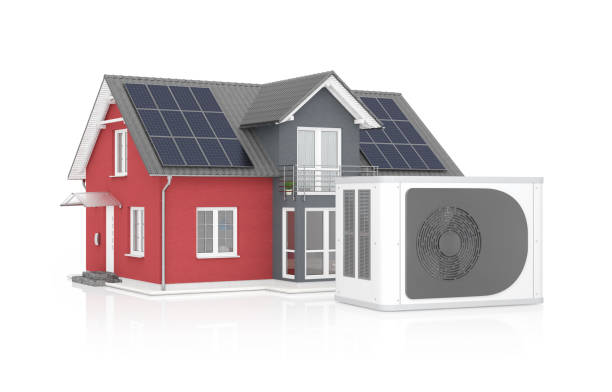Driven by growing worldwide demand for sustainable energy solutions in recent years, homeowners and companies are looking for more intelligent means to lower energy costs and carbon emissions. The linking of solar energy and heat pump technology offers one of the most optimistic developments in this area. These systems combined provide a very efficient and ecologically friendly means of powering and heating houses, so making them a forward-looking option for those looking to adopt renewable energy while maintaining comfort and cost savings.
Learning the Technologies
Employing photovoltaic (PV) panels, solar energy systems collect sunlight and change it into electrical. Directly powering lights, appliances, even entire houses, this clean, green energy source might be utilized. Conversely, heat pumps are advanced technologies that move heat instead of produce it. They move heat from the ground, air, or water inside during colder months. In the hotter months, the opposite happens; heat is removed from the house to cool it.
Alone, each of the technologies helps to cut our reliance on fossil fuels. However, combined, they produce a highly effective energy cycle that maximizes renewable energy use while lowering running expenses.
Advantages of Integration
Solar power and heat pumps combine intelligently to provide a synergy that amplifies the benefits of both systems. The time many homes’ peak need for heating or cooling matches the day solar panels often generate most energy. Direct powering of heat pumps with solar energy helps homeowners to greatly lower their utility bills and reduce grid dependence.
Efficiency is yet another benefit. Three to four times more efficient than conventional electric or gas heating systems, heat pumps are already well-known. Powered by renewable solar energy, the environmental impact of heating and cooling is much lowered. Actually, research reveal that combining these technologies can reduce a home’s carbon emissions by more than half, therefore it’s a major first towards net zero living.
For homeowners looking to make this transition seamlessly, consulting trusted professionals such as istore heat pump installers ensures that systems are designed and fitted for maximum performance and efficiency.
Seasonal equilibrium and storage options
The volatility of solar energy is one of the main issues: manufacturing is more on sunny days and less during cloudy or nighttime hours. Integrating solar energy with heat pumps offers flexibility, though. Modern systems can be connected to battery storage units, guaranteeing that extra solar energy produced during the day is kept and applied to operate the heat pump when the sun is not shining.
Additionally complementing solar energy patterns is the seasonal efficiency of heat pumps. For instance, while heating demand is great in the winter, solar production may be lower; nevertheless, developments in air source and ground source heat pumps guarantee effective running even at low outdoor temperatures. The integrated system guarantees dependability year around when used in conjunction with energy storage or grid backup.
Cost reductions and monetary incentives
Although the upfront cost of installing solar panels and heat pumps can be high, the long-run benefits are undeniable. Homeowners sometimes see cheaper power costs very shortly after installation. Many areas provide tax credits, rebates, and government subsidies to help cover the costs of installation, therefore increasing accessibility of these systems. Furthermore appealing becomes the financial return on incorporating solar and heat pump technology as energy prices keep climbing.
This connection also helps companies and real estate developers since it raises property values and shows a dedication to sustainability—a feature increasingly valued by environmentally aware customers.
Toward a more intelligent, greener future
More than just a cost reduction strategy, the convergence of solar energy with heat pump technology is a model for better energy management. Effective use of renewable energy helps homes and businesses to reduce their carbon footprint, become more energy independent, and help to generate a greener Earth.
Better storage solutions, AI driven controls, and intelligent energy management systems will help to further integrate technology as it keeps advancing. The future foretells homes and communities that are also resilient, sustainable, and self sufficient in addition to being energy efficient.
Incorporating solar energy with heat pump technology not only enhances energy efficiency but also significantly reduces utility costs. This innovative approach is gaining traction in various regions, including Yuba City, where North Valley Solar Power is leading the way in providing sustainable energy solutions. By harnessing the power of the sun, these systems offer a reliable and eco-friendly alternative to traditional energy sources, ensuring a cleaner and more sustainable future. As more homeowners and businesses adopt this technology, the potential for widespread environmental benefits continues to grow, making it a pivotal component in the transition to renewable energy.

